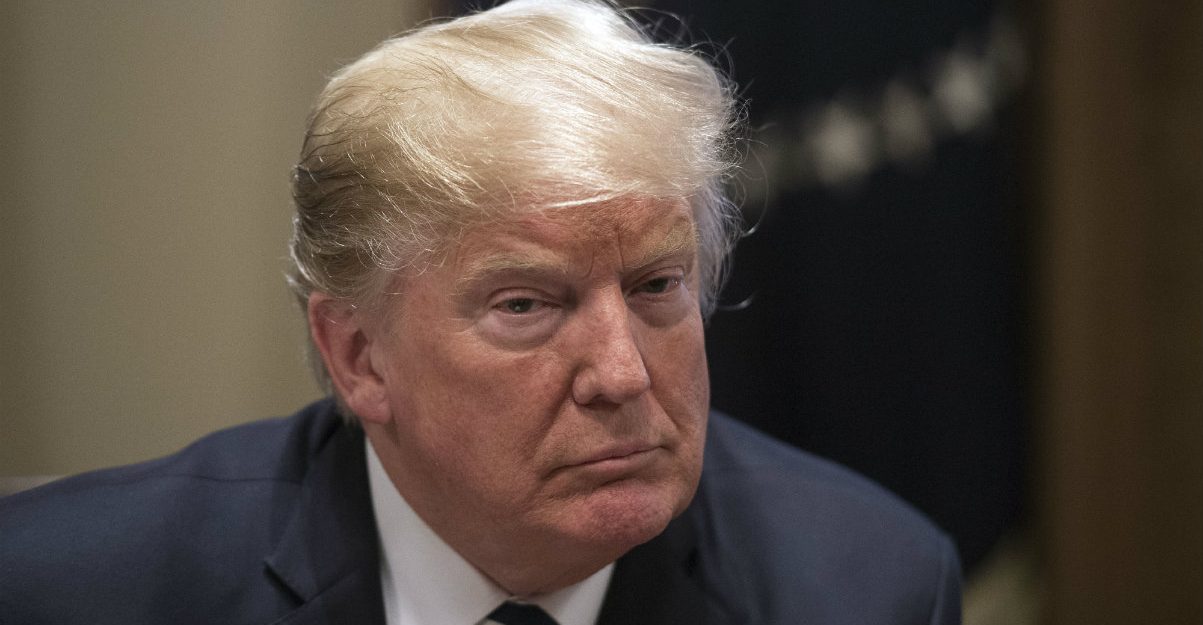
President Donald Trump filed a court brief late Friday night in an effort to avoid invasive–and potentially politically costly–discovery demands in the ongoing lawsuit against the president brought by Summer Zervos. Specifically, Trump argues that certain discovery requests should be denied or he’ll have to subpoena each of the 21 additional women who have accused him of various forms of sexual assault.
Zervos was a contestant on season five of the Apprentice; her lawsuit accuses Trump of defamation per se after he publicly denied sexually assaulting her in a hotel room years ago. Defamation is an unprotected form of false speech which is legally actionable at the state level.
At the heart of the matter is the allegation that Trump groped and forcibly kissed Zervos in 2007 when the former reality show contestant approached the show’s host about job opportunities.
In her original complaint, filed three days before Trump’s sparsely attended inauguration in Washington, D.C., Zervos detailed the alleged sexual assault. That complaint reads, in relevant part:
Ms. Zervos was ambushed by Mr. Trump on more than one occasion. Mr. Trump suddenly, and without her consent, kissed her on her mouth repeatedly; he touched her breast; and he pressed his genitals up against her. Ms. Zervos never consented to any of this disgusting touching.
By way of his attorney, Marc Kasowitz, Trump now claims that the discovery demands in the Zervos lawsuit–specifically those related to the president’s alleged sexual assault of some 21 women–would necessitate the president subpoenaing each of the women who have accused him of sex crimes. In the brief, Trump’s lawyer writes:
Rather than sharpening the issues for trial, the Request would result in significant delay and prolixity and likely lead to “unfettered litigation,” including in excess of 21 mini-trials concerning each of the women identified. The parties would have to subpoena each of these women to disprove each of their accusations.
The brief continues, arguing, “The invasive discovery would lead to a media circus that would risk tainting the jury pool and lead to additional ‘mini-trials,’ as plaintiff acknowledges, concerning the admissibility of the accusations and whether the conduct was sufficiently similar, as well as the witnesses’ credibility.”
Another aspect of Kasowitz’ argument on behalf of Trump is that Zervos’ discovery requests “seekspersonal and inflammatory matters” and that this weighs against their disclosure.
Kasowitz also accuses Zervos of lacking genuine interest in the information regarding those additional sexual assault claims. In the brief, Kasowitz argues that Zervos doesn’t want said information for her own defamation case, but rather, in order “to distract the President.”
Zervos attorney Mariann Wang has previously argued exactly the opposite.
In a discovery request filed on August 21, Wang wrote:
Surely it would be relevant, and a legitimate focus of cross-examination under this case law, if there were evidence supporting the conclusion that [Trump] knew that he routinely or frequently engaged in sexual groping or if he believes that because he is a ‘star,’ he is entitled to grope women sexually, knowing full well that they did not consent.
So, what does Kasowitz think the judge in the case should do about those Zervos discovery requests? “[T]hey should be stricken,” Trump’s attorney wrote.
[image via NICHOLAS KAMM and AFP and Getty Images]